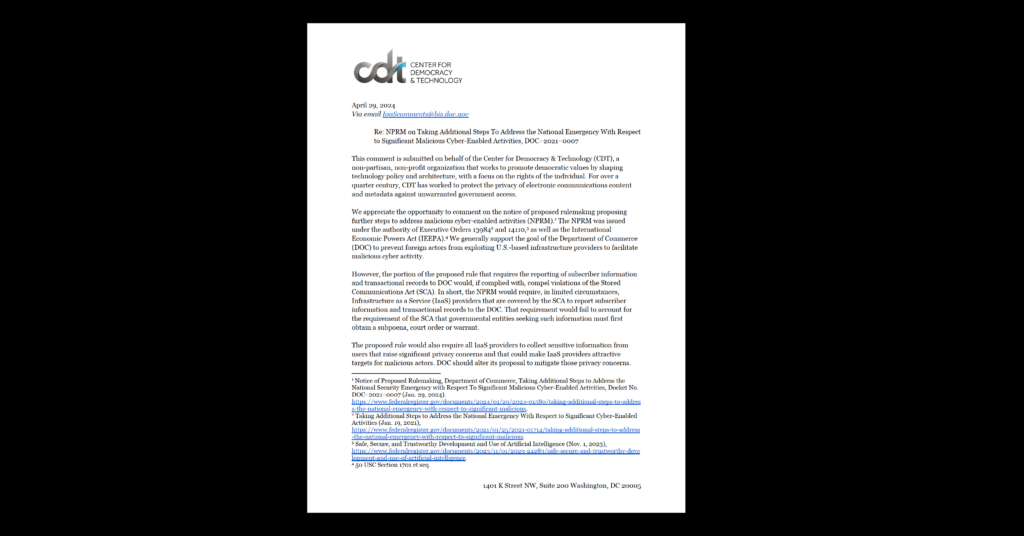The Debate is Not About Privacy vs. Innovation
We live in a world where increasingly everything we do is observable and recordable. Does this mean the end of privacy? Or is there a way to protect privacy, and the liberty it enables, while also promoting technological innovation?
Justin Brookman, CDT’s Director of Privacy, recently testified on existing threats to privacy and the need for baseline privacy legislation in the U.S. Speaking before the Committee on Energy and Commerce’s Subcommittee on Commerce, Manufacturing, and Trade, Brookman’s testimony offered context for the recent focus on privacy by Congress, the White House, and the FTC.
Without a framework in place to assure consumers of limitations on the collection and retention of the minutiae of our lives by unknowing parties, any sense of personal privacy may evaporate. We may lose the ability to do even the smallest things unnoticed — from reading newspapers, to going for a drive, to talking to friends, reading books, watching TV, purchasing gifts, or walking down the street.
But to “opt out” of all data collection, correlation, and use that takes place when we go about our daily activities would be analogous to “opting out” of electricity thirty years ago. To disconnect from the services that collect such personal, sensitive data would be to disconnect from society.
Cutting off all data collection is not viable, but finding a middle-ground compromise that forestalls persistent monitoring is absolutely necessary to protect liberty, ensure consumer trust in the digital ecosystem, and enable innovation. To this end, Brookman discussed the Administration’s new Privacy Bill of Rights and its proposal to work with a range of stakeholders to develop “codes of conduct” for companies to follow.
Brookman emphasized that this “light touch” approach is a positive step but that the Administration’s calls for baseline privacy legislation should still be heeded. Consumers deserve a basic expectation of privacy and control over what they share (and with whom), and companies would benefit from an environment of trust to encourage the adoption of new and beneficial services. The debate is not one of privacy versus innovation, but how to enable privacy and the innovation that it supports.


